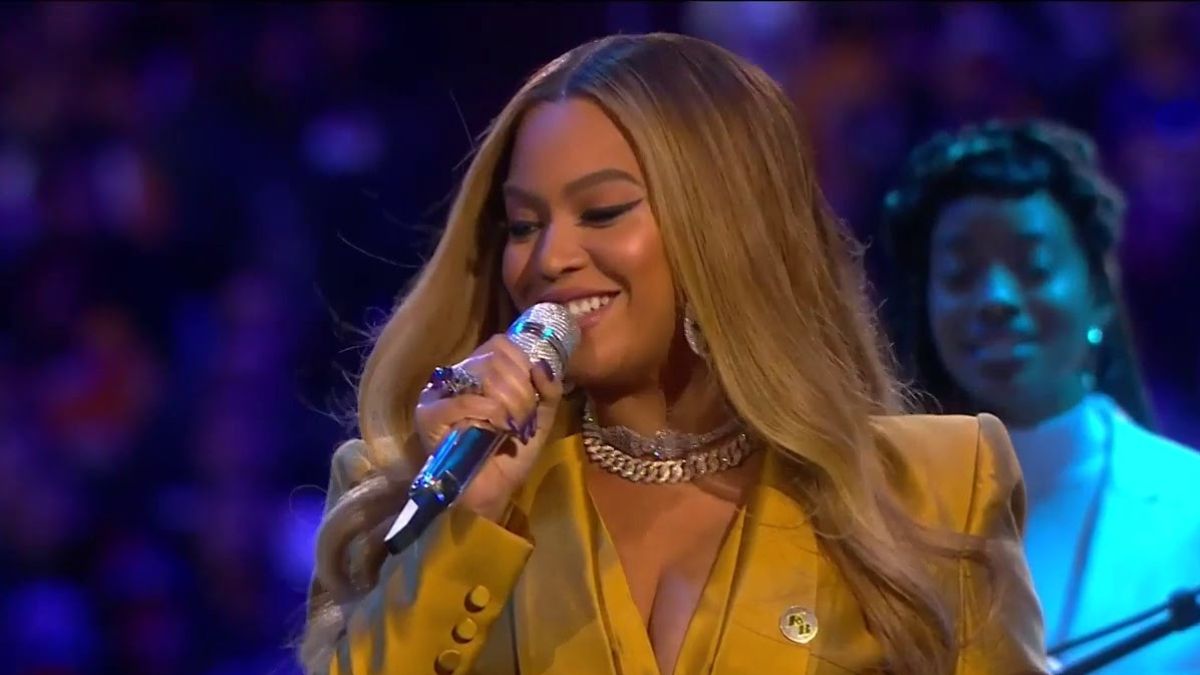Unapologetically Beyoncé: A Journey Through Art, Activism, and Influence

Few names stand out as much as Beyoncé Knowles-Carter. Her voice is distinctive, her movements memorable, and her presence compelling. Beyoncé’s development, more than her talent, is what makes her genuinely renowned. Beyoncé has transformed from a Houston girl group standout to an unstoppable worldwide force, reinventing not just musical fame but also what it means to live with purpose and strength.
This is the story of Beyoncé Giselle Knowles-Carter, a woman who transformed ambition into art, anguish into purpose, and commanded the international stage with every beat of her heart.
Humble Beginnings in Houston
Beyoncé was born on September 4, 1981, in Houston, Texas, to the sounds of gospel music and the rhythms of southern soul. Her mother, Tina Knowles, was a hairdresser and fashion designer, while her father, Mathew Knowles, was a sales executive with keen business acumen. Beyoncé demonstrated extraordinary skill from an early age. At the age of seven, she started winning local talent events, wow audiences with her powerful voice and brave stage presence.
Her parents recognised something unique about her and encouraged her to pursue music. This early nurture resulted in the establishment of the girl group Girls Tyme, which would eventually become the global sensation Destiny’s Child.
Destiny’s Child: Creating the Foundation for a Superstar
Destiny’s Child led the way during the golden period of R&B in the late 1990s. The group, managed by her father Mathew and contracted to Columbia Records, had a rough start, but everything changed when their second album, “The Writing’s on the Wall” (1999), was released. Destiny’s Child became well-known because to songs like “Bills, Bills, Bills” and “Say My Name”.
However, stardom does not always come easily. Internal group disputes prompted lineup changes, media attention, and public condemnation. However, Beyoncé remained a constant. Her leadership, charm, and unwavering perfectionist streak became the foundation of the group’s success.
By the time Destiny’s Child released their final album, “Destiny Fulfilled” (2004), they had become one of the best-selling female groups of all time, creating the groundwork for Beyoncé to launch her solo career.
Breaking Out Solo: A New Era for Beyoncé
Beyoncé’s solo debut, “Dangerously in Love” (2003), was more than just a triumph; it was a cultural reset. It garnered her five Grammy Awards and produced memorable hits such as “Crazy in Love” and “Baby Boy.” Suddenly, she was more than simply a former girl group leader; she was a superstar.
But Beyoncé did not stop there. Over the next decade, she kept reinventing herself with albums like:
- “B’Day” (2006) features the fiery “Déjà Vu” and the powerful “Irreplaceable.”
- In “I Am… Sasha Fierce” (2008), she debuted her alter ego Sasha Fierce with singles including “Single Ladies” and “Halo.”
- “4” (2011) is a more mature, heartfelt collection of work that demonstrates her artistic breadth beyond mainstream music.
These initiatives were more than simply economic successes; they demonstrated Beyoncé’s versatility, boldness, and ability to dominate both charts and stages.
Love, Legacy and Lemonade
In 2008, Beyoncé married Shawn Carter, often known as Jay-Z, combining two music empires into a single cultural dynasty. Their connection, characterised by both adoration and conflict, became crucial to some of Beyoncé’s most intimate and powerful works.
She released the visual album “Lemonade” in 2016, which seemed more like a revolution than a release.
Lemonade was visceral, lyrical, and sensitive, exploring themes such as betrayal, forgiveness, Black femininity, and ancestral strength. Songs like “Hold Up,” “Don’t Hurt Yourself,” and “Freedom” (with Kendrick Lamar) made it evident that Beyoncé wasn’t simply conveying a tale, but her reality.
The album received widespread acclaim not only for its creativity but also for how it addressed race and gender issues, establishing Beyoncé as a pioneer in utilising music as a tool for social commentary.
Visual Albums and Cultural Statements
By the mid-2010s, Beyoncé had upended established music release methods. Her self-titled album “BEYONCÉ” (2013) defied expectations and reinvented digital music marketing. It was a whole visual experience: bold, passionate, and cinematic. With it, she demonstrated that she did not only follow trends, but also created them.
Then followed “Homecoming” (2019), a Netflix documentary and live CD about her iconic Coachella performance. It was more than simply a concert; it was a love letter to historically Black colleges and universities (HBCUs), a celebration of Black greatness, and a lesson in discipline.
She then released “Black Is King” (2020), a visual album and complement to The Lion King that she voiced. Once again, she used the world platform to promote African aesthetics, tradition, and identity. Beyoncé had always been an icon, but she was now an unashamed cultural leader.
Entrepreneur, Activist, and Mother
Beyond the stage and studio, Beyoncé’s influence extends into business, fashion, and philanthropy. She co-founded Parkwood Entertainment, her own production firm, and created Ivy Park, a successful athleisure brand in cooperation with Adidas.
Beyoncé has always utilised her platform for advocacy, addressing problems of race, gender, and justice. She has supported causes such as education and disaster assistance through the BeyGOOD Foundation, as well as COVID-19 help and racial fairness. Following the killings of George Floyd and Breonna Taylor, Beyoncé spoke out strongly, advocating for judicial responsibility and societal reform.
However, her most defining function outside of celebrity is motherhood. She and Jay-Z have three children: Blue Ivy (born 2012) and twins Rumi and Sir (born 2017). Beyoncé admits that motherhood has transformed her priorities and enhanced her talent. You can hear it in her songs, feel it in her sensitivity, and see it in her deliberate choices.
Renaissance: A New Chapter
In 2022, Beyoncé released “Renaissance,” a genre-defying ode to dance music, LGBTQ culture, and liberty. Renaissance was a sparkling celebration of pleasure, resistance, and freedom, paying honour to her late Uncle Johnny, who introduced her to house music, ballroom dancing, and uninhibited self-expression.
This album reminded the world that Beyoncé is always developing. She studies culture, values history, and seeks new ways to lead. Whether it’s a disco-infused dance record or a literary deep dive into grief, she discovers new parts of herself to explore—and allows audiences to do the same.
Why Beyoncé Matters?
At this moment, Beyoncé is much more than a pop star. She is a cultural institution—a woman who has used her celebrity to empower others rather than to boost her ego. Throughout decades of development, she has kept her personal life relatively secret, preferring to express herself via her art. Her perfectionist streak is notorious. When she chooses to be silent, it has the same power as her voice.
She is at the nexus of excellence, activism, and honesty. Beyoncé is always making a statement, whether she’s playing at the Super Bowl, releasing surprise albums, hosting the Met Gala, or simply living her life as a Black woman who owns her story.
Perhaps her greatest talent is that she never seeks for applause. She just produces, performs, and uplifts, allowing her art to speak for itself.
Legacy in the Making
Beyoncé is now the most honoured female performer in Grammy history, having received over 30 Grammy Awards. She has sold over 200 million records globally, performed historic tours, and cultivated a global audience fondly known as the Beyhive. She has inspired generations of musicians, including Rihanna, Adele, Chloe x Halle, and Lizzo.
However, honours only convey part of the picture.
Beyoncé’s legacy lives on in how she encouraged us to embrace our stories, speak our truths, and show up fully—even when it’s unpleasant. She emphasises that vulnerability is a kind of strength. That art is a tool for justice. And Black women have always been—and will continue to be—at the centre of culture.
Beyoncé Knowles-Carter is a unique type of artist in a world of transitory fads and quick fame—one who transcends the time. Her transformation from a little girl in Houston to a woman who controls the world stage exemplifies vision, discipline, and bravery.
She didn’t merely pursue excellence; she defined it.
And as long as there are tales to tell, stages to illuminate, and barriers to cross, Beyoncé will be there, redefining what is possible one period at a time.
Also read: From Burnout to Blossom: Ohemaa Bonsu’s Blueprint for Ancestral Wellness









